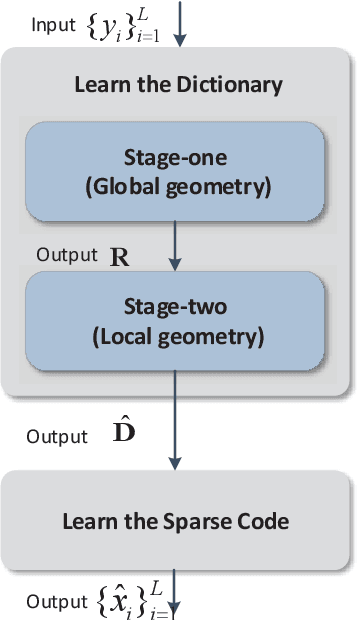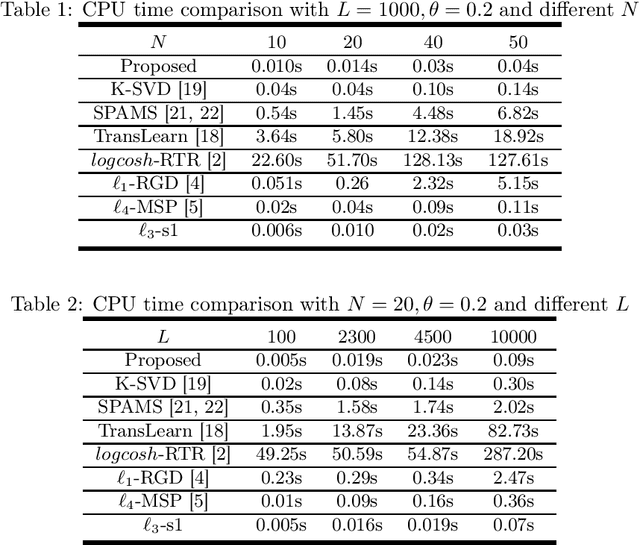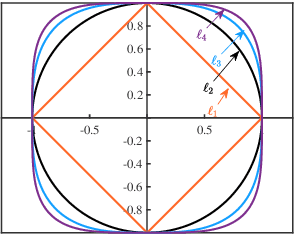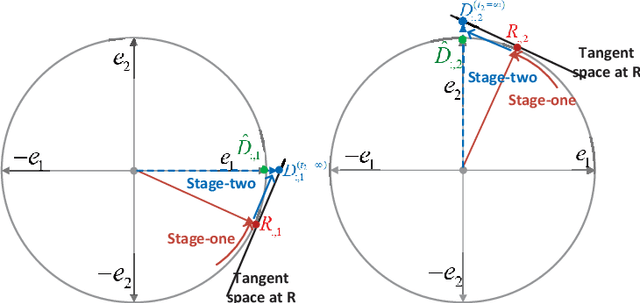Efficient Sparse Coding using Hierarchical Riemannian Pursuit
Paper and Code
Apr 21, 2021



Sparse coding is a class of unsupervised methods for learning a sparse representation of the input data in the form of a linear combination of a dictionary and a sparse code. This learning framework has led to state-of-the-art results in various image and video processing tasks. However, classical methods learn the dictionary and the sparse code based on alternative optimizations, usually without theoretical guarantees for either optimality or convergence due to non-convexity of the problem. Recent works on sparse coding with a complete dictionary provide strong theoretical guarantees thanks to the development of the non-convex optimization. However, initial non-convex approaches learn the dictionary in the sparse coding problem sequentially in an atom-by-atom manner, which leads to a long execution time. More recent works seek to directly learn the entire dictionary at once, which substantially reduces the execution time. However, the associated recovery performance is degraded with a finite number of data samples. In this paper, we propose an efficient sparse coding scheme with a two-stage optimization. The proposed scheme leverages the global and local Riemannian geometry of the two-stage optimization problem and facilitates fast implementation for superb dictionary recovery performance by a finite number of samples without atom-by-atom calculation. We further prove that, with high probability, the proposed scheme can exactly recover any atom in the target dictionary with a finite number of samples if it is adopted to recover one atom of the dictionary. An application on wireless sensor data compression is also proposed. Experiments on both synthetic and real-world data verify the efficiency and effectiveness of the proposed scheme.
 Add to Chrome
Add to Chrome Add to Firefox
Add to Firefox Add to Edge
Add to Edge